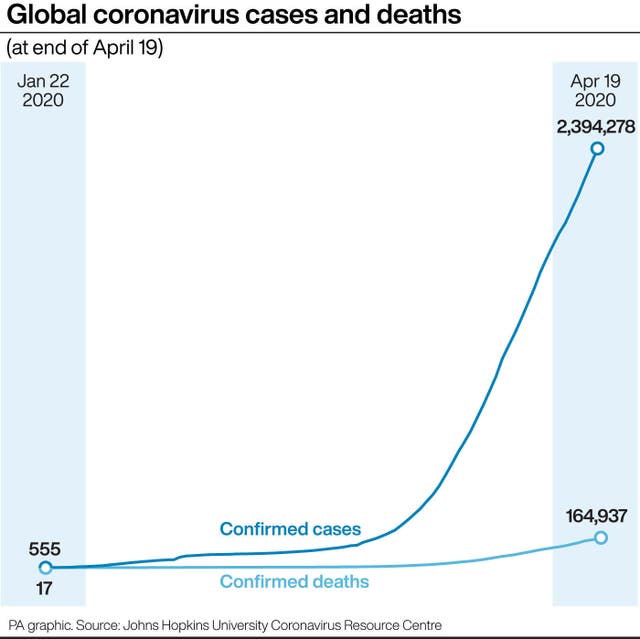US president Donald Trump has announced on Twitter that he will “temporarily suspend” immigration to the US, referring to the “Invisible Enemy,” a term he has used in the White House press briefings and on Twitter to refer to coronavirus.
This move will have huge ramifications and some may fear is the suspension will be lifted once the pandemic is over.
This news came as US oil prices started to recover after turning negative for the first time on record when oil producers ran out of space to store the oversupply of crude.
Trump’s tweet about suspending immigration provoked fierce criticism with many taking to social media to vent their frustration with the President’s plan.
UK political activist, Femi Oluwole, tweeted “The US has less than 1/20 of the world’s population but a 1/3 of the world’s coronavirus cases. And STILL Donald Trump is telling people that foreigners are the problem.”
Journalist Anne Applebaum also Tweeted her criticism of Trump’s plan. She wrote: “Trump declaring he will block immigration in order to fight the “invisible enemy” is yet another attempt to deflect attention from the total chaos created by his administration. Immigrants are not responsible for the federal government’s failure to produce tests and PPE.”
NBC News White House Correspondent Geoff Bennett tweeted: ‘Immigration was already functionally shut down. The WH had closed the U.S.-Canada border and started deporting asylum-seekers without due process.
‘International air travel has largely been suspended. Formalizing it serves as a simple way for Trump to rile up his base.’
Congressman Don Beyer of Virginia tweeted: “From the beginning Trump has flailed about seeking someone to blame for his own failure. Obama. Governors. China. Speaker Pelosi. People of Asian descent.
“Immigration has nearly stopped and the US has far more cases than any other country. This is just xenophobic scapegoating.”
Talks drag on US coronavirus aid programme
Late-stage negotiations in Washington on a new $450 billion (£364.5 billion) coronavirus aid package dragged past Monday’s hoped-for deadline, but the White House insists a deal is within reach.
President Donald Trump said he expects a Senate vote “hopefully” on Tuesday.
As talks continued, the basics of the deal appear largely set with most of the funding going to a small-business payroll loan program that is out of money.
Additional help would be given to hospitals and billions more would be spent to boost testing for the virus, a key step in building the confidence required to reopen state economies.
The emerging draft measure has grown into the second largest of the four coronavirus response bills so far.
Democratic demands have caused the measure to balloon, though they likely will be denied the money they want to help struggling state and local governments.
The Senate met for a brief session on Monday afternoon that could have provided a window to act on the upcoming measure under fast-track procedures, but it was not ready in time.
Senate Majority Leader Mitch McConnell set up another session for Tuesday in the hope that an agreement will be finished by then.
“It’s now been four days since the Paycheck Protection Program ran out of money,” he said.
“Republicans have been trying to secure more funding for this critical program for a week and a half now.

“Our Democratic colleagues are still prolonging their discussions with the administration, so the senate regretfully will not be able to pass more funding for Americans’ paychecks today.”
The emerging deal would provide more than $300 billion (£243 billion)for the small-business payroll program, with $60 billion (£48.6 billion) or so set aside for community lenders that seek to focus on under-banked neighbourhoods and rural areas.
Another $60 billion (£48.6 billion) would be available for a small-business loans and grants program that has previously been aimed at helping businesses harmed by natural disasters like hurricanes.
Additionally, it would bring $75 billion (£60.8 billion) for hospitals and $25 billion (£20.3 billion) for testing, according to those involved in the talks.
The government’s Paycheck Protection Program has been swamped by companies applying for loans and reached its appropriations limit of 1.7 million last Thursday.
Related – Ireland to quadruple WHO contribution after Trump halts funding

